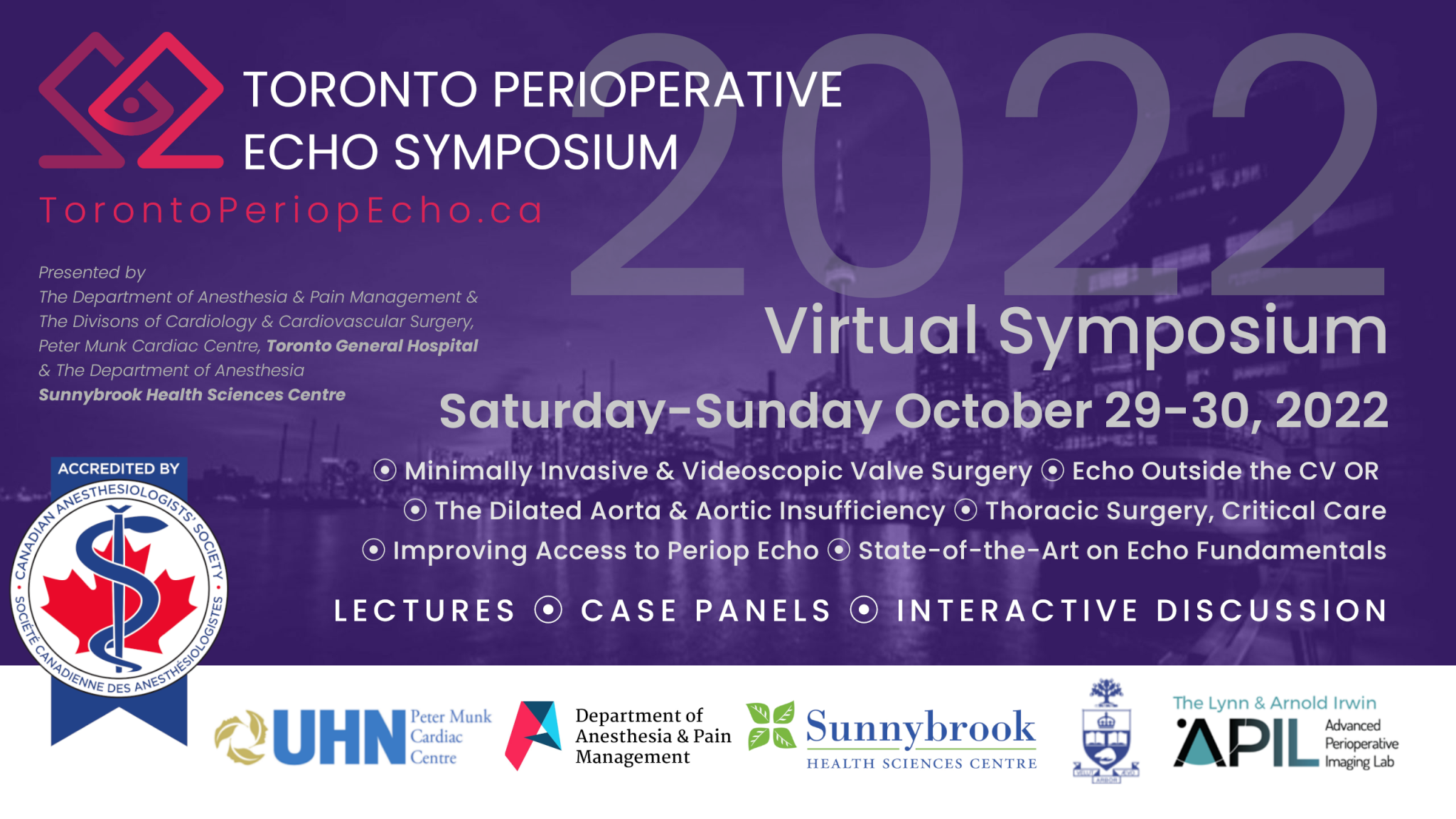CME Accreditation
This event is an Accredited Group Learning Activity (Section 1) as defined by the Maintenance of Certification program of The Royal College of Physicians and Surgeons of Canada and approved by the Canadian Anesthesiologists’ Society. You may claim a maximum of 12 hours (credits are automatically calculated)
CME Planning Committee
Azad Mashari (Course Director), Sarah Russell, Bilal Ansari, Mitesh Badiwala, Elad Dana, Chris Hudson, Ilya Lembrikov, Faraj Massouh, Arnaud Mbadjeu, Jacobo Moreno, Blake MacKay, Elmari Neethling, Matthew Nelms, Ahmad Omran, Sharon Peacock, Fabio Papa, Vikas Patel, Pablo Perez D’Empaire, Marcus Salvatori, Michael Sullivan, Diana Tamir, Wendy Tsang, Annette Vegas, Marcin Wasowicz, Bill Wong
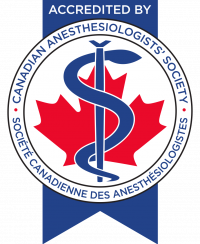
Objectives
The 2020 publication of the Guidelines for the Use of Transesophageal Echocardiography to Assist with Surgical Decision-Making in the Operating Room ( doi: 10.1016/j.echo.2020.03.002 ) by the American Society of Echocardiography, marked a significant milestone in the development of TEE as an integral component of clinical decision-making in acute care.
Demographic shifts & technical developments in surgery and imaging are contributing to a significant expansion of the use of POCUS and TEE. In this two-day virtual symposium our faculty will illustrate the application of POCUS & TEE to address critical point-of-care decisions across a wide range of acute care settings.
Upon completion of this program, participants should be able to
- Describe the expanding scope of perioperative echo, including the range of modalities and new areas of application
- Illustrate the application of TEE and POCUS to address critical point-of-care decisions in a variety of acute-care situations & settings
- Explain the anatomic, surgical and biomechanical rationale behind key components of the TEE assessment of mitral and aortic insufficiency
- Critically discuss factors limiting translation of echo technologies into improved patient outcomes, and outline strategies for addressing these challenges
- Critically discuss the interaction of access to acute care services and social determinants of health in contributing the high burden of cardiovascular disease and poor outcomes in rural and remote communities
Program
Day 1 : Saturday, October 29
8:45 Azad Mashari – Opening Remarks
9:00 Session 1 – Thoracic Surgery, Critical Care & ECLS
Curator & Moderator: Jacobo Moreno
-
- Discuss the use of point-of-care real-time trans-esophageal lung ultrasonography (TELU) for quickly establishing the etiology of acute hypoxemia.
- Define the advantages and disadvantages of TELU vs trans-thoracic lung ultrasonography.
-
- Explain the manifestations of RV adaptation to lung pathophysiology
- Describe a goal-oriented approach for TEE assessment of RV function in the setting of lung disease
-
- Explain the mechanisms of RV adaptation to chronic volume and pressure overload
- Discuss the different imaging phenotypes of RV dysfunction related to acute vs. chronic stress
- Outline a goal-oriented approach to RV assessment to guide clinical management in the OR
10:40-11:00 Q&A
11:00 BREAK (15 min)
11:15 Session 2 – Minimally Invasive & Videoscopic Valve Surgery
Curator & Moderator: Elmari Neethling
-
- Describe the key steps and significant decision points in the surgical technique of minimally invasive mitral valve repair
- Explain the use of TEE finding in decision making in minimally invasive mitral valve repair.
11:45 Elmari Neethling – Anesthesia for Minimally Invasive Cardiac Surgery: Key Difference
-
- Describe specific pre-operative assessment considerations for minimally invasive cardiac surgery
- Demonstrate the intra-operative anesthesia set-up and important safety considerations specific to MIS
- Demonstrate the integration of hemodynamic and TEE findings in monitoring and point-of-care decision making in MIS
12:10 Massimiliano Meineri – Echocardiographic Assessment of Minimally Invasive Mitral Valve Repair
-
- Describe the utility of intraoperative TEE in minimally invasive mitral valve repair.
- Outline a structured approach for MV assessment repair, highlighting specific measurements for MIS techniques
- Explain the use of TEE to detect unexpected intraoperative complications requiring immediate remedy in minimally invasive mitral valve repair.
12:35 Massimiliano Meineri – MIS Mitral Valve Repair Cases
-
- Illustrate the use of intraoperative TEE for decision making in MIS MV repair
- Describe common complications and pitfalls of TEE assessment in this setting
- Illustrate the use of intraoperative TEE for decision making around management of sub-optimal repairs
13:05 Q&A (included in above video)
13:15 LUNCH (45 min)
14:00 Session 3 – Echo Outside the Cardiovascular OR
Curator & Moderator: Fabio Papa
-
- Recognise the essential role of TEE in cardiac arrest
- Assess key findings in unstable and hypoxic patients using TEE
- Examine key findings in unstable patients using extra-cardiac TEE
14:30 Cristian Arzola – POCUS for management of emergencies in Labour & Delivery
-
- Discuss the essential role of POCUS during hemodynamic resuscitation of obstetrics patients
- Recognize key findings in unstable and hypoxic patients using POCUS
- Assess key findings in obstetric unstable patients using extra-cardiac POCUS
14:55 Fabricio Zasso – POCUS for Airway Management
-
- Describe the essential role of POCUS in airway management
- Recognize key findings during airway assessment using POCUS
- Identify the basic description of the ultrasonography of the airway
15:20 Alberto Goffi – POCUS use during hemodynamic instability outside the OR: the heart and beyond
-
- Describe the essential role of trans-thoracic POCUS in cardiac arrest
- Identify key findings in unstable and hypoxic patients using POCUS
- Assess key findings in unstable patients using extra-cardiac POCUS
15:45 Fabio Papa – POCUS Cases and Q&A
16:15 Day 1 Debrief: Open Discussion
16:15-16:45 Open discussion with audience, organizers and available faculty
Day 2: Sunday, October 30
8:45 Session 4 – The Dilated Aorta & Aortic Insufficiency
Curator: Ilya Lembrikov, Azad Mashari
Moderator: Jennifer Chung
-
- Summarize the material and mechanical properties of the thoracic aorta in healthy individuals.
- Describe pathophysiologic changes in thoracic aortic aneurysms and their related effects on aortic biomechanics.
- Outline the invasive and non-invasive techniques for studying aortic biomechanics.
- Discuss the relevance of altered aortic biomechanics in perioperative and critical care management.
9:20 Annette Vegas – Update on the Bicuspid Valve: Imaging and Surgical Management
-
- Describe International consensus statement on nomenclature and classification of the congenital bicuspid aortic valve and its aortopathy, for clinical, surgical, and interventional purposes.
- Explain the key anatomic factors that determine success of BAV repair
- Discuss the recent updates in BAV repair and outcomes
-
- Discuss the history of aortic valve repair, highlighting key challenges, landmark achievements and current obstacles to increasing access to this procedure
- Describe the surgical geometry of the aortic valve complex and how common congenital and acquired morphological abnormalities lead to insufficiency
- Explain the contribution of the key parameters measured in perioperative imaging to surgical decision-making
10:20 Q&A (included in above video)
10:30 Aidan Sharkey – AV repair and dilated aorta: Interactive Case Panel
-
- Demonstrate the use of perioperative TEE to assess need for and feasibility of AV repair in the setting of chronic aortic dilation.
- Describe the key prognostic factors for AV repair success in tricuspid and bicuspid aortic valves in the setting of aortic dilation
- Demonstrate and explain the integration of perioperative TEE information with other imaging modalities and measurements for clinical decision making in AV repair.
11:00 BREAK (15 min)
11:15 Session 5 – Translation to Practice: Improving Access, Improving Outcomes
Curator & Moderator: Azad Mashari
-
- Describe the burden of acute rheumatic fever in indigenous and remote communities on Turtle Island, the age groups most commonly effected and the sequelae
- Explain the role of poor housing and other social determinants of health in contributing to the disease burden
- Describe the current state of access to cardiac diagnostic services and discuss their potential benefit in ensuring optimal outcomes for the patients affected
- Discuss the responsibility of acute care physicians to advocate not only for improved diagnosis and treatment but also prevention and addressing the underlying social determinants
-
- Identify barriers to access to ultrasound services and education in remote communities.
- Compare the features, workflow, and feasibility of various types of remote support interventions that have been used to deliver ultrasound services.
- Understand the ARCTICA program model and evaluate preliminary findings in two Canadian communities.
12:15 Q&A
12:30-13:15 LUNCH (45 min)
13:15 Session 6 – State-of-the-Art on Echo Fundamentals
Curator & Moderator: Marcus Salvatori
-
- Review the evidence of use of trans-esophageal echocardiography in Coronary Artery Bypass Graft surgery (CAG).
- Discuss the methodology and present the results of the study.
- Present two clinical cases when TEE changed the surgical approach in surgeries of CABG
13:45 Feroze Mahmood – The Best Papers I Read This Year
-
- Highlight some important, practice relevant new developments published in the past year.
- Critically discuss the application of these findings to day-to-day perioperative echocardiography practice.
14:10 Wendy Tsang – AI and ML for automation of chamber quantification and other common measurements
-
- Describe the state-of-the art in automation of chamber quantification and other routine measurements in clinical echocardiography
- Explain the potential benefits and pitfall of this technology
- Discuss the extent of and barriers to translating this technology into bedside practice
- Discuss standardized methods to evaluate artificial intelligence studies in a systematic fashion.
14:35 Sankalp Sehgal – Structural Heart Disease Interventions: New Lessons on Not-so-new Procedures
-
- Critically discuss recent evidence (past 2-3 years) on the efficacy and medium-long term outcomes of the most common SHD interventions.
- Describe our current understanding of the indications and patient populations that appear to benefit
- Discuss the relevance of indication creep and the correspondence between the populations included in major trials and those actually being treated
- Recognize the ASE Structural Heart Intervention Guideline
15:00-15:15 Q&A
15:15 Marcus Salvatori and Annette Vegas – Echo Jeopardy
-
- Review common high-yield topics in PTE
- Highlight some rare but important PTE findings
15:45 Fabio Papa, Azad Mashari – Presentation of Jorge Cruz Award and Closing Remarks
16:00 Adjournment
16:05 Symposium Debrief: Open Discussion
16:05-16:30 Open discussion with audience, organizers and available faculty
Faculty

Yannis Amador MD FASE
Staff Cardiovascular Anesthesiologist, Department of Anesthesiology & Perioperative Medicine, Kingston Health Sciences Centre Assistant Professor, Department of Anesthesiology, Queen's University. Dr. Amador completed residency training in anesthesiology and emergency medicine in Costa Rica. Subsequently he completed a research fellowship with Dr. Feroze Mahmood at Beth Israel Deaconess Medical Center, Harvard Medical School followed by a clinical fellowship in cardiovascular anesthesiology at Toronto General Hospital. He is certified in Advance Perioperative Echocardiography from the National Board of Echocardiography. He is the organizer of the ulti-disciplinary echo rounds at the Kingston Health Sciences Centre and a member of the organizing committee for the POCUS workshop at the Canadian Anesthesia Society (CAS) meeting.
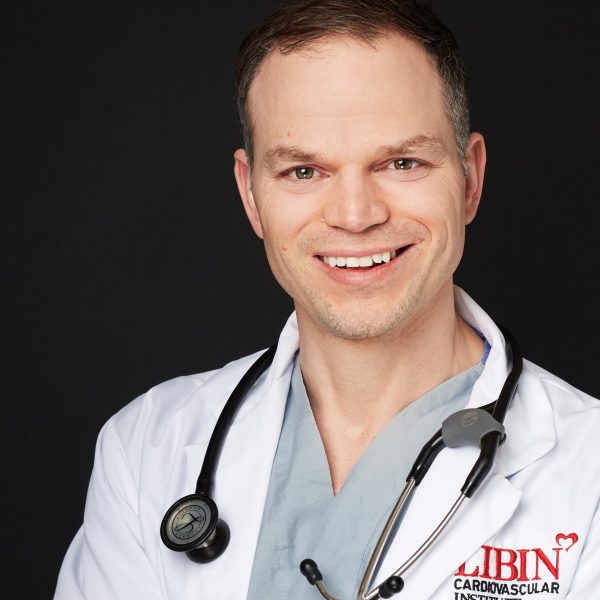
Alexander J. Gregory MD FRCPC
Cardiovascular anesthesiologist and assistant professor in the Department of Anesthesiology, Perioperative and Pain Medicine, and Libin Cardiovascular Institute, at the Cumming School of Medicine, University of Calgary. After completion of his BSc at Cornell University (2002), he obtained his medical degree (2007), FRCPC training in anesthesiology (2012) at the University of Calgary, and fellowship in cardiothoracic anesthesiology at the University of Pennsylvania (2013). As Director of Cardiovascular Anesthesiology Research, interests include enhanced recovery, patient reported outcomes, patient blood management, and aortic biomechanics. He is a local investigator for several multi-center clinical trials developed through the Peri-operative Anesthesiology Clinical Trials (PACT) and Cardio-Link Clinical Trials groups. He is a member of both the Society of Cardiovascular Anesthesiologists’ (SCA) and Canadian Anesthesiologoists’ Society (CAS). He is the Anesthesiology Clinical Lead for Thoracic Aortic Surgery, as well as Program Supervisor for both the University of Calgary Cardiovascular Anesthesia and Perioperative Ultrasound Fellowship Programs.
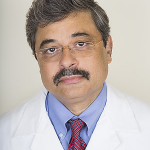
Feroze Mahmood MD FCPS FASE
Director, Vascular Anesthesia & Perioperative Echocardiography. Professor, Anesthesiology, Harvard Medical School Besides his clinical training as an anesthesiologist, Dr. Mahmood has completed fellowships in adult cardiothoracic anesthesia and transesophageal echocardiography at the Beth Israel Deaconess Medical Center where has served since. His clinical interests include mitral valve repair, structural heart disease and three-dimensional imaging and printing. He has published extensively on these subjects and conducts various national and international courses on the subject. He is the former course director of the SCA's Echo Week and the Boston Echo Course in perioperative transesophageal echocardiography. Prof. Mahmood is a long-time associate editor of the Journal of Cardiothoracic and Vascular Anesthesia.
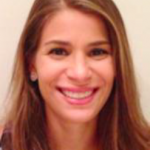
Selene Martinez Perez MD
Cardio-Thoracic Anesthesia Fellow, Department of Anesthesia and Pain Management, Toronto General Hospital. Dr.Martinez-Perez completed her undergraduate medical education at the Central University of Venezuela, Caracas. She completed her residency in Anesthesiology and Critical Care at Hospital del Mar, Autonomous University of Barcelona, Spain. After 3 years of experience as Staff Anesthesiologist and Cardiovascular Critical Care in Hospital de la Santa Creu I Sant Pau in Barcelona, Spain, completing a Masters of Science in mechanical ventilation, Dr. Martinez Perez completed two clinical fellowships in Advance Clinical Practice (2020-2021), and Cardiovascular Anesthesia (2021-2022) at the Toronto General Hospital. Her clinical and research interest are transesophageal echocardiography (Advanced PTE exam candidate), Cardiovascular and Thoracic anesthesia and intraoperative management of mechanical ventilation.
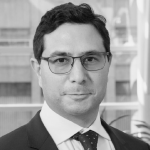
Azad Mashari MD FRCPC (Course Director)
Staff Cardiovascular Anesthesiologist, Department of Anesthesia & Pain Management, Toronto General Hospital. Assistant Professor, Dept of Anesthesiology & Pain Medicine, University of Toronto. Dr. Mashari completed his residency and fellowship training in cardiovascular anesthesiology at the University of Toronto. He is the director of the Advanced Perioperative Imaging Lab (APIL) at Toronto General Hospital and chair of the planning committee for the Toronto Perioperative Echo Symposium. His research focuses on applications of medical image computing, 3D modeling and 3D printing in medical education and perioperative care.
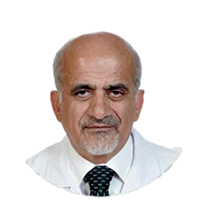
Ahmad Omran MD, FACC, FESC, FASE, FECVI
Staff Cardiologist, Toronto General Hospital, University Health Network. Dr. Omran completed his fellowship in echocardiography at Toronto General Hospital in 1996 and subsequently collaborated with Tirone David in developing intraopertive imaging techniques to support the development of novel techniquest for aortic and mitral valve repair. He is the author of landmark papers on TEE assessment of mitral valve anatomy and suitability for mitral valve repair and created the first map of TEE classification of the mitral valve segments and scallops which is still in use in many centers. Dr. Omran has published more than 35 papers in role of TEE in valves repair and contributed chapters in 5 textbooks of echocardiography including chapter of role of 3D TEE in cardiac operating room in the “Nanda’s Comprehensive Textbook of Echocardiography”. He is certified by National Board of Echocardiography and European Association of Cardiovascular Imaging (EACVI) and is an active member of American and European societies of echocardiography. He is currently working as staff cardiologist supporting the perioperative echocardiography program at Toronto General Hospital. He is a highly regarded teacher in echocardiography and runs the quality assurance program for intraoperative TEE at Toronto General Hospital.
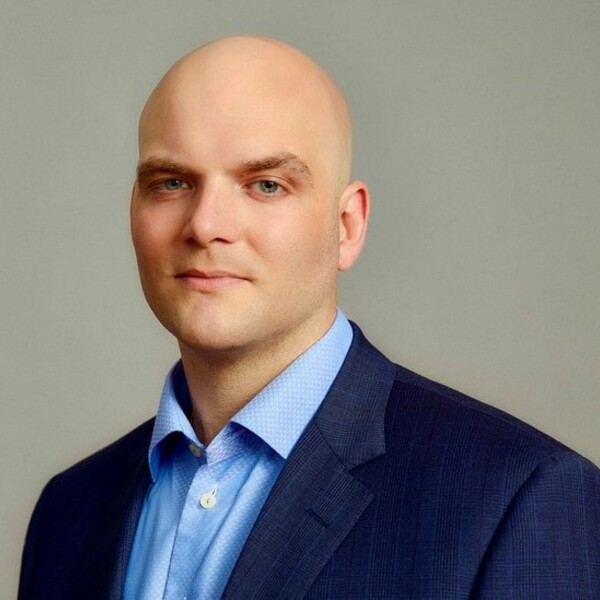
Marcus Salvatori MD MSc FRCPC
Staff Cardiovascular Anesthesiologist & Critical Care Physician, Department of Anesthesia & Pain Management, Toronto General Hospital, University Health Network. Assistant Professor, Dept of Anesthesiology & Pain Medicine, University of Toronto. Dr. Salvatori obtained a Master of Science, University of Toronto, Department of Physiology (2005) and his Bachelor of Medicine and Surgery (with Merit) from Newcastle University School of Medicine, Newcastle upon Tyne, UK (2013). Dr. Salvatori completed his anesthesia residency at the University of Toronto and obtained his Fellowship, Royal College of Physicians of Canada (FRCPC) in Anesthesiology (2019). He completed a fellowship in cardiovascular anesthesia and critical care medicine at the Toronto General Hospital, University Health Network. His clinical areas of focus are cardiovascular anesthesia, echocardiography and critical care medicine.
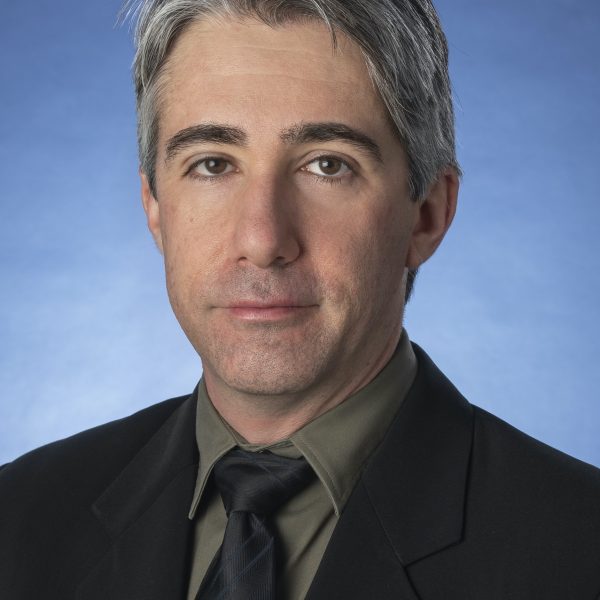
Fabricio Zasso MD MBA
Staff Anesthesiologist, Mount Sinai Hospital, Toronto. Assistant Professor in the Department of Anesthesiology and Pain Medicine at the University of Toronto. Dr. Zasso has completed a Master of Health Science in Translational Research at the University of Toronto. He has a major clinical and research interest in airway management, Point-of-Care Ultrasound (POCUS), simulation and education, and obstetric anesthesia.
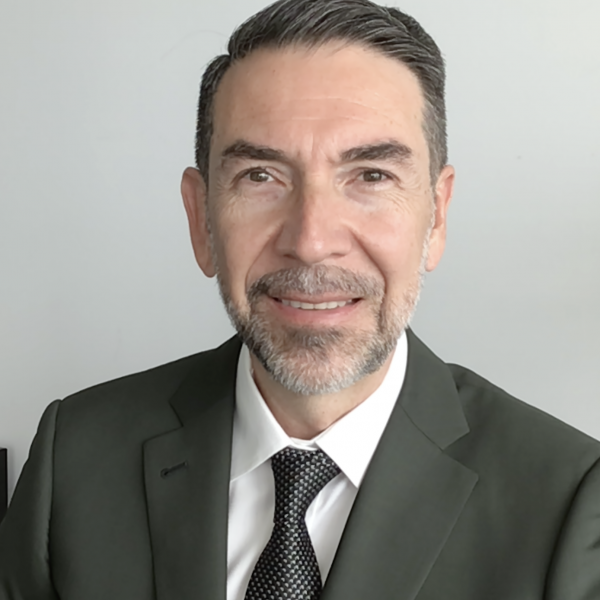
Christian Arzola MD MSc
Staff anesthesiologist, Clinical Lead for Point-of-Care Ultrasound, Department of Anesthesia and Pain Management at Mount Sinai Hospital-Sinai Health in Toronto. Associate Professor, Department of Anesthesiology and Pain Medicine in the University of Toronto. Dr. Arzola holds a Master degree in Clinical Epidemiology, and certificates in Applied Biostatistics and Medical Education. His clinical training includes a Fellowship in Obstetrical Anesthesia at Mount Sinai Hospital, University of Toronto, and Certificate in Critical Care Ultrasonography from CHEST/ACCP (American College of Chest Physicians) His research and teaching interests are Point-of-care Ultrasound in Anesthesia Practice, Obstetric Anesthesia, Ultrasound-assisted Neuraxial blocks, and Ultrasound Applications in Obstetric Anesthesia.
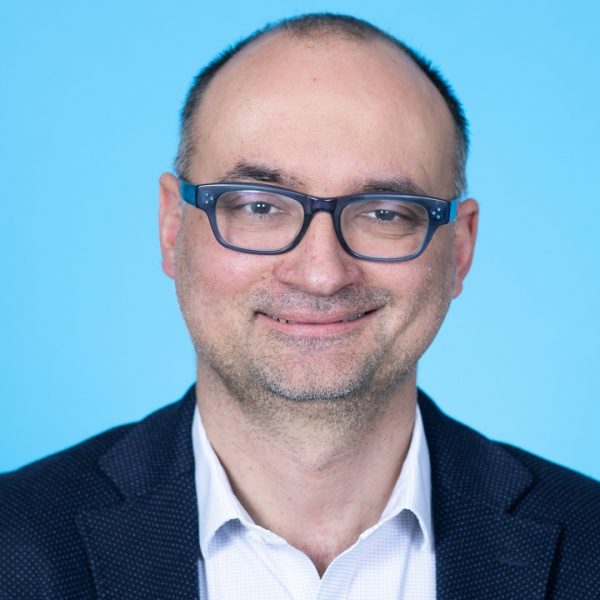
Alberto Goffi MD
Staff Physician at St. Michael’s Hospital – Unity Health Toronto. Associate Professor, University of Toronto, Department of Medicine and Interdepartmental Division of Critical Care Medicine. After graduating from the University of Torino (Italy) and completing his internal medicine training in the same city, he moved to Toronto in 2010 for a fellowship in adult critical care medicine. His clinical and academic interests include neurocritical care and point-of-care ultrasound in acute care medicine, with a focus on lung ultrasound and optimal teaching strategies for its competency achievement. He is the co-lead of the IDCCM Critical Care Ultrasound Curriculum and the co-lead of the Toronto Addis Ababa Academic Collaboration (TAAAC) Adult Critical Care Medicine fellowship. Alberto loves travelling for teaching; he has already taught ultrasound and neurocritical care in five different continents. In 2015, he won the Young Lecturer Award at the ESICM annual meeting. In 2019, he has been selected as the recipient of the Frank S. Rutledge Award of Excellence in Critical Care Teaching. Outside of work, Alberto has a passion for creating logos and drawings digitally; the IDCCM logo is one of his creations. In the past 4 years, he has learned that nothing is more fulfilling (and tiring!) in life than playing with Sofia and Oliver, his two children. He loves POCUS so much that, when he was a clinical fellow, the nurses named the ICU ultrasound system “Alberto’s second love”. Why second? Well, the first one was the old system who stopped working for excessive use by Alberto…
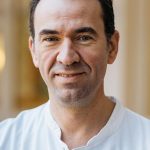
Massimilano Meiner MD PhD FASE
Co-Chair Department of Anesthesia, Herzzentrum Leipzig, Leipzig, Germany. Professor of Anesthesiology, University of Toronto. Dr. Meineri completed Fellowship training in Cardiac Anesthesia from Toronto General Hospital, where he went on to become the director of perioperative echocardiography and founding director of the Lynn and Arnold Irwin Advanced Perioperative Imaging Lab. His academic focus is perioperative echocardiography. He is Diplomate in advanced Perioperative transesophageal echocardiography. He’s involved in development of on line echocardiography teaching resources for the Perioperative Interactive Education website (pie.med.utoronto.ca). He has organized and lead numerous point of care ultrasound courses around the world. His main research interest is 3D intraoperative echocardiography.
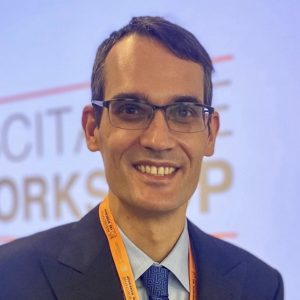
Jacobo Moreno Garijo MD MSc EDA FASE
Staff Cardiovascular Anesthesiologist, Department of Anesthesia, Sunnybrook Health Sciences Centre. Clinician-Investigator, Department of Anesthesia and Interdepartmental Division of Critical Care Medicine, University of Toronto. Dr. Moreno completed clinical fellowships in Critical Care Medicine, Cardiovascular Anesthesia and Thoracic Anesthesia at Toronto General Hospital. He is certified in Advance Perioperative Echocardiography from the National Board of Echocardiography. He is an associate investigator at the Lynn & Arnold Irwin Advance Perioperative Imaging Lab (APIL) at Toronto General Hospital and is an active member of The Resuscitative TEE project and Perioperative Echocardiography Group at Sunnybrook Health Sciences Centre. He is the Director of the Toronto and Barcelona 3D Perioperative Echocardiography TEE courses.
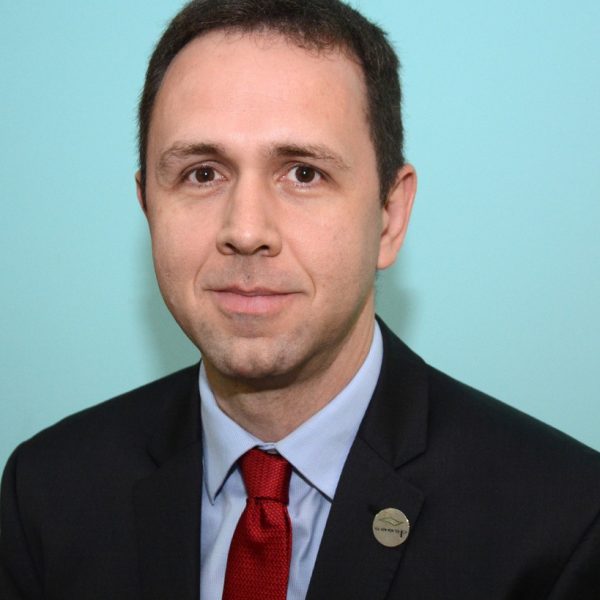
Fabio de Vasconcelos Papa MD MScCH FASE
Staff Anesthesiologist, St. Michael’s Hospital, Toronto. Assistant Professor, Department of Anesthesiology and Pain Medicine, University of Toronto. Dr. Papa graduate from University of São Paulo at Ribeirão Preto School of Medicine where he also finished his anesthesia residency. He completed his clinical fellowship in Cardiovascular Anesthesiology at the University of Toronto. Dr. Papa is Fellow of the American Society of Echocardiography (FASE), Associated Editor of the Brazilian Journal of Anesthesiology (BJAN) and completed a Master in Health Practitioner in Clinical Education at Data Lana School of Public Health at the University of Toronto. Dr. Papa has a major clinical interest in perioperative transeophageal echocardiography, POCUS and Curriculum development.
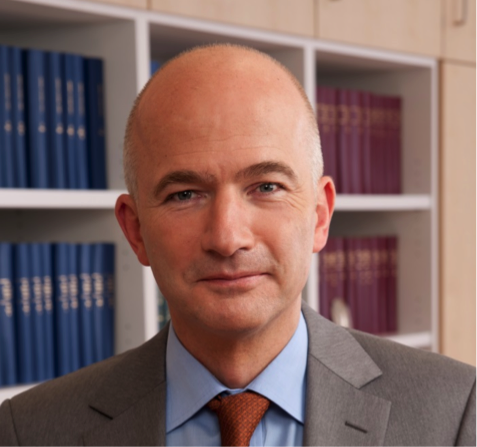
Hans‑Joachim Schäfers MD PhD
Professor of Surgery and Chairman of the Department of Thoracic and Cardiovascular Surgery at Saarland University Medical Center. The department has the largest program of aortic valve repair activities in Europe (>200 cases per year) and is also one of the most active centers in pulmonary endarterectomies (>50 per year). Prof. Schäfers has had several focus areas over the past 25 years, including adult and pediatric cardiac surgery with a particular emphasis on valve repair, heart and lung transplantation, general thoracic surgery, pulmonary endarterectomy, and postoperative management after cardiac surgery. These areas have also been the fields of research and publications.

Sankalp Sehgal MD
Staff Cardiac Anesthesiologist, Department of Anesthesiology, Critical Care and Pain Medicine, Beth Israel Deaconess Medical Center (BIDMC), Harvard Medical School, Boston Dr. Sehgal specializes in anesthesia for cardiothoracic surgery, vascular and thoracic procedures, and is a member of the structural heart program. His research focuses on cardiothoracic surgical outcomes, advanced perioperative echocardiography as well as cardiac electrophysiology lab. He is a a co-investigator the TRILUMIATE and TRISCEND trials for tricuspid valve interventions. He is the former associate vice-chair of education (2014-16), section head for peri-operative echocardiography (2014-18) and mentor for the Annual New York TEE conference sessions (2016-18). He has been an invited panel speaker at numerous annual national and international conferences including the Indian Association of Cardiovascular and Thoracic Anesthesiologists (IACTA) International TEE Webinars, the American Society of Anesthesiologists (ASA) conference, New York State Society of Anesthesiologists (NYSSA) PGA conference and the Annual Perioperative and Critical Care Echocardiography workshop, India.
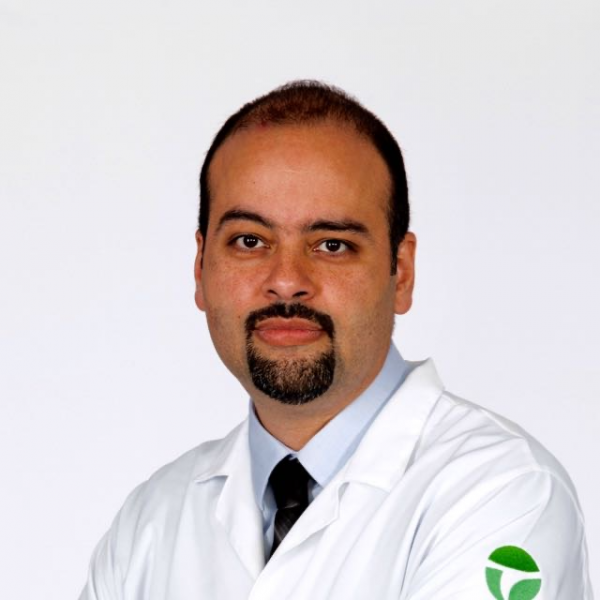
Raffael Zamper MD PhD
Staff Anesthesiologist, Cardiac Anesthesia Program Director and Cardiac Anesthesia Fellowship Coordinator, Faculty of Medicine. Assistant Professor, Western University, London ON. Dr. Zamper, graduated from Medicine University of Sao Paulo, Brazil and completed his anesthesiology residency at the General Hospital of The University of Sao Paulo. He completed his PhD on coagulation in cirrhotic patients undergoing liver transplantation at the Albert Einstein Jewish Hospital, Sao Paulo. He subsequently completed clinical fellowships in cardiac anesthesia and perioperative echocardiography and ultrasound at the London Health Science Center, Western University where he currently works as staff anesthesiologist and director of the cardiac anesthesia fellowship program.
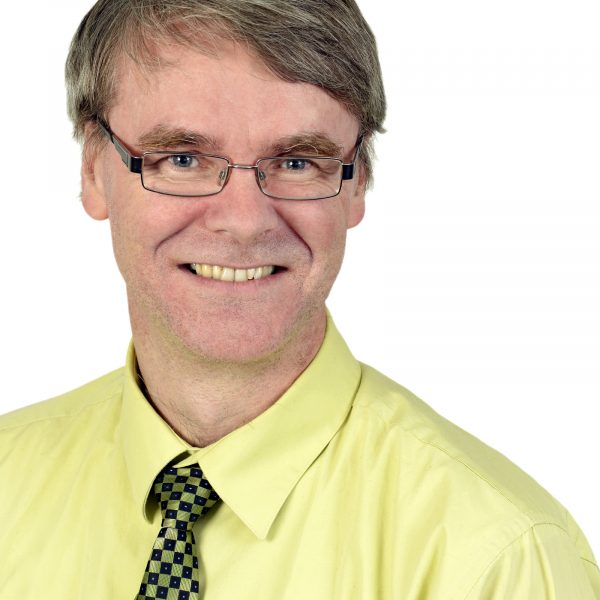
André Denault MD PhD FRCPC FASE ABIM-CCM, FCCS
André Denault is an academic-physician with special interests in ultrasound. His medical qualifications and specialties include internal medicine (1991), critical care medicine (1993) and anesthesia (1996). In 2010 he completed a PhD in biomedical Science at the University of Montreal. He has advanced certification in National Board in Echocardiography (NBE) in perioperative transesophageal echocardiography and critical care ultrasound. Dr Denault has written 317 peer-reviewed articles, 60 book chapters and 3 textbooks on perioperative transesophageal and critical care ultrasound. He has been invited as speaker in local, national and international meeting. He won several teaching awards including the Canadian Anesthesia Research Award in 2022. He currently works as a cardiac anesthesiologist at the Montreal Heart Institute Major interest includes right ventricular function, brain and somatic oximetry and bedside whole-body ultrasound.

Nicholas Grubic MSc
Nicholas Grubic is a Senior Analyst at Ontario Health and a Research Assistant within the Cardiovascular Imaging Network at Queen’s University (CINQ). He completed his Master of Science in Epidemiology and Bachelor of Science at Queen’s University. Nicholas is heavily involved in the planning, coordination, and evaluation of the ARCTICA (Accelerated Remote Consultation by Tele-POCUS in Cardiopulmonary Assessment) program. He is a trainee member of the Canadian Cardiovascular Society and the Cardiac Arrythmia Network of Canada. Nicholas’ other research interests include cardiovascular imaging, epidemiology, sports cardiology, and health services research.
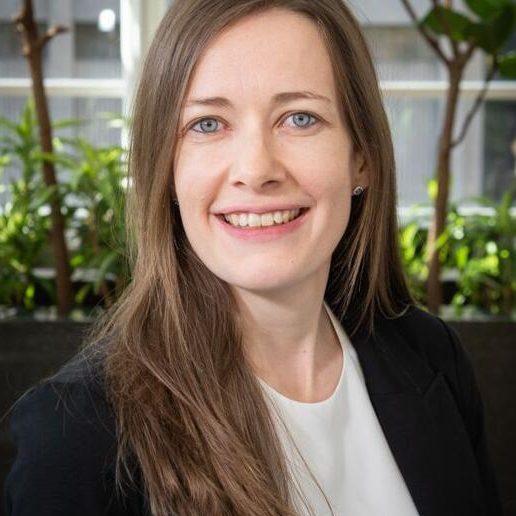
Elmari Neethling MD FRCPC
Staff Cardiovascular Anesthesiologist & Critical Care Physician, Department of Anesthesia & Pain Management, Toronto General Hospital, University Health Network. Assistant Professor, Dept of Anesthesiology & Pain Medicine, University of Toronto. Dr. Neethling graduated from Stellenbosch University and completed residency training at the University of Cape Town, South Africa. She subsequently completed both Cardiac Anesthesia and Critical Care Medicine Fellowships at the Toronto General Hospital in Canada and is certified in Advance Perioperative Echocardiography (Advanced PTEeXAM) from the National Board of Echocardiography. Her clinical and research interests in trans esophageal echocardiography, critical care medicine, perioperative outcome and point-of-care ultrasound (POCUS).
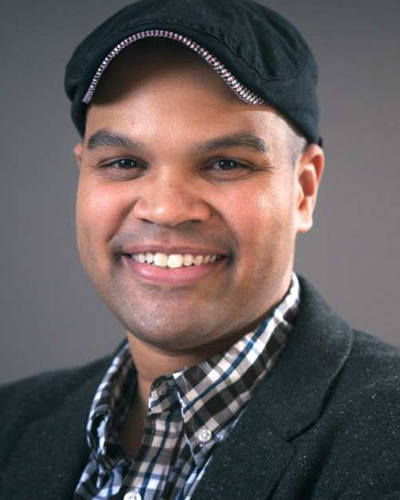
Michale Kirlew MD CCFP(EM) FCFP
Staff Physician, Weeneebayko Area Health Authority, Moose Factory. Dr. Kirlew holds academic appointments at the Northern Ontario School of Medicine, Queen’s University, and the University of Ottawa. He has worked extensively in rural northern Ontario for well over a decade, including many years Sioux Lookout. He is born and raised in Ottawa where he completed his medical training and residency. His interest in rural and remote health care and the health of Indigenous communities were sparked early in life when a friend explained to him what a residential school was—something that wasn’t found in any of his school books. In addition to his full-scope of clinical practice, which in the North goes far beyond so-called “primary care”, he is a active advocate for health justice and addressing the long-standing and unfortunately continuing assaults on the health and well being of indigenous communities in Canada.
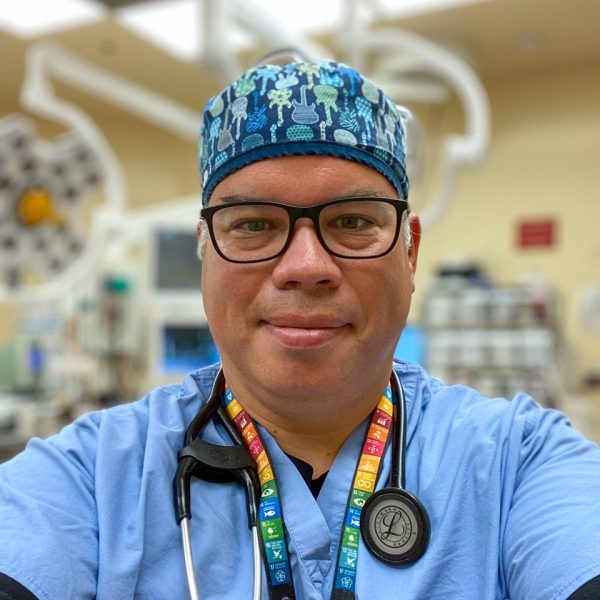
Pablo Perez D’Empaire MD FRCPC FCCM FASE
Staff Cardiovascular Anesthesiologist, Department of Anesthesia, Sunnybrook Health Sciences Centre. Lecturer, Dept of Anesthesiology & Pain Medicine, University of Toronto. Dr. Perex D'Empaire completed his undergraduate medical educaition at the University of Zulia, Venezuela. He completed his residency in anesthesiology and clinical fellowships in Critical Care Medicine and Cardiovascular Anesthesiology at the University of Toronto. He is a Fellow of the American College of Critical Care Medicine (FCCM) and the American Society of Echocardiography (FASE). He is certified in Advance Perioperative Echocardiography (Advanced PTEeXAM) and Critical Care Echocardiography (CCEeXAM) by the National Board of Echocardiography.
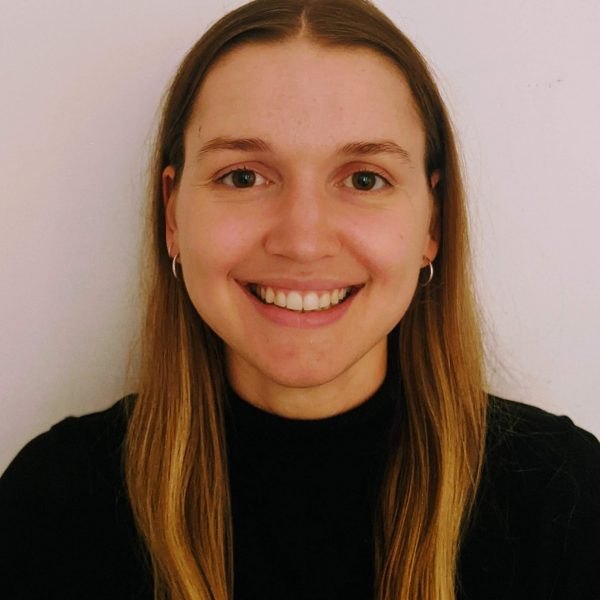
Geneviève Riendeau Beaulac MD
Staff anesthesiologist, Montreal Sacré-Cœur Hospital, University of Montreal. Dr. Beaulac recently completed a whole-body ultrasound fellowship with Dr André Denault at the Montreal Heart Institute, with whom she learned to optimize ultrasound learning with simulation-based teaching sessions. Her focus is mainly on transesophageal and transthoracic echocardiography during hemodynamic instability and cardiac arrest. She is certified in Advanced Perioperative Transesophageal Echocardiography (Advanced PTEeXAM) and Critical Care Echocardiography (CCEeXAM) from the National Board of Echocardiography (NBE).

Wendy Tsang MD FRCPC FASE
Staff Cardiologist and Clinician Investigator, Toronto General Hospital, University Health Network. Associate Professor, Department of Medicine, University of Toronto. Dr. Tsang is the head of the Complex Valve clinic at Toronto General Hospital. She completed her medical degree at Queen’s University and went on to complete her Adult Cardiology fellowship at the University of Toronto. She then completed a CIHR-funded Multimodality Cardiac Imaging research fellowship at the University of Chicago. During that time, she also obtained a Master’s degree in Health Studies. She was a member of the writing groups for both the 2012 ASE/EACVI 3D Guidelines and the 2015 ASE/EACVI Chamber Quantification Guidelines. She also serves on the Editorial Board of the Journal of the American Society of Echocardiography and is a member of the Royal College of Physician and Surgeon’s Area of Focused Competency subcommittee in Adult Echocardiography. She currently holds a Heart and Stroke Foundation of Canada National New Investigator Award. Her research focuses on congenital and valvular heart disease, 3D echocardiography, and artificial intelligence.
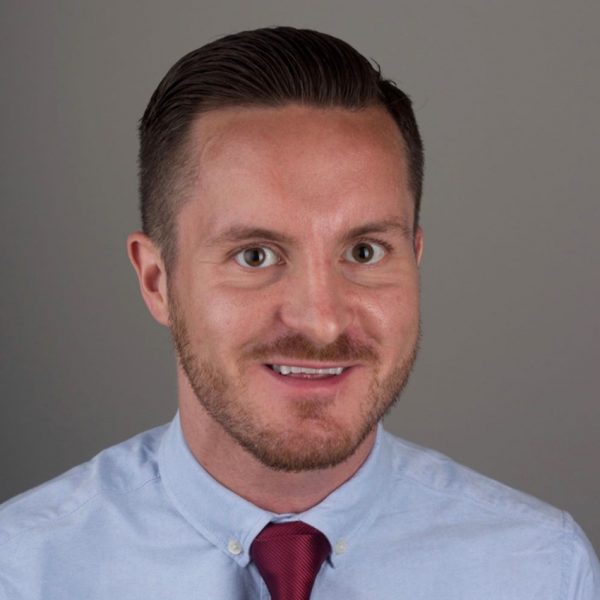
Aidan Sharkey MD
Attending Anesthesiologist, Beth Israel Deaconess Medical Center, Boston. Instructor in Anaesthesia, Harvard University. Dr. Sharkey graduated from the School of Medicine at Trinity College Dublin and undertook his residency training in Anesthesia from the College of Anesthetists of Ireland. He subsequently completed a Cardiac Anesthesia fellowship at Toronto General Hospital in Canada, and later became an attending anesthesiologist at Beth Israel Deaconess Medical Center in Boston. Dr. Aidan Sharkey is an Instructor of Anaesthesia at Harvard Medical School, with clinical and research interests including echocardiography, interventions in structural heart disease, and point-of-care ultrasound (POCUS).
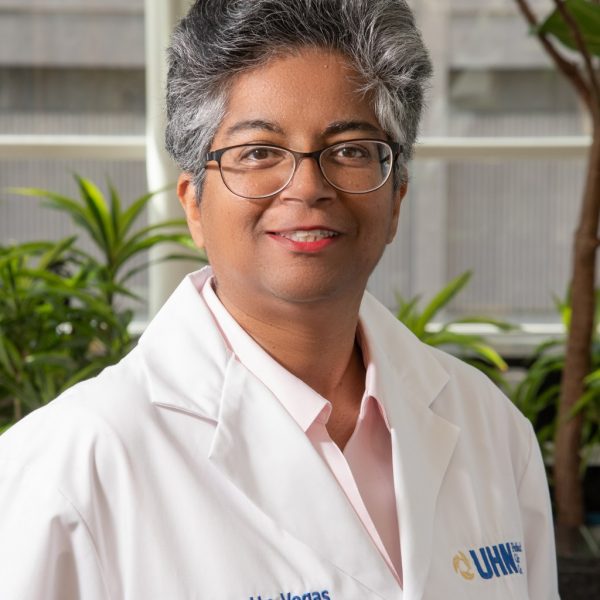
Annette Vegas MD FRCPC FASE
Staff Cardiovascular Anesthesiologist & Critical Care Physician, Department of Anesthesia & Pain Management, Toronto General Hospital. Professor of Anesthesiology, University of Toronto. Prof. Vegas graduated from medical school at McGill University (Montreal) and completed an anesthesia residency at the University of Toronto. She concluded a cardiac anesthesia fellowship at Toronto General Hospital, where she has practiced since 1994. She has an interest in echocardiography and has developed web-based educational materials (http://pie.med.utoronto.ca) for teaching both transesophageal and transthoracic echocardiography. Annette has extensively published journal articles and book chapters, authored textbooks and co-edited textbooks related to echocardiography. She is a professor of anaesthesiology and an elected fellow of the American Society of Echocardiography (FASE). In 2020 Dr. Annette Vegas reassumed the role of director of Perioperative TEE at Toronto General Hospital.
Competing Interests Policy
Faculty will declare all relevant relationships and potential competing interests during their presentation.
Faculty COI statements will be posted here when available.
Should a conflict of interest be identified a variety of strategies will be employed for mitigation, as recommended by the Royal College of Physicians and Surgeons of Canada (https://www.royalcollege.ca/rcsite/cpd/accreditation/toolkit/faqs-on-accreditation-e ). These include revision of the presentation topic or focus; peer review of the content in question to ensure scientific integrity and balance. If the concern raised is not addressed by these methods, an alternate speaker for the topic will be sought out, or the topic removed from the program.

